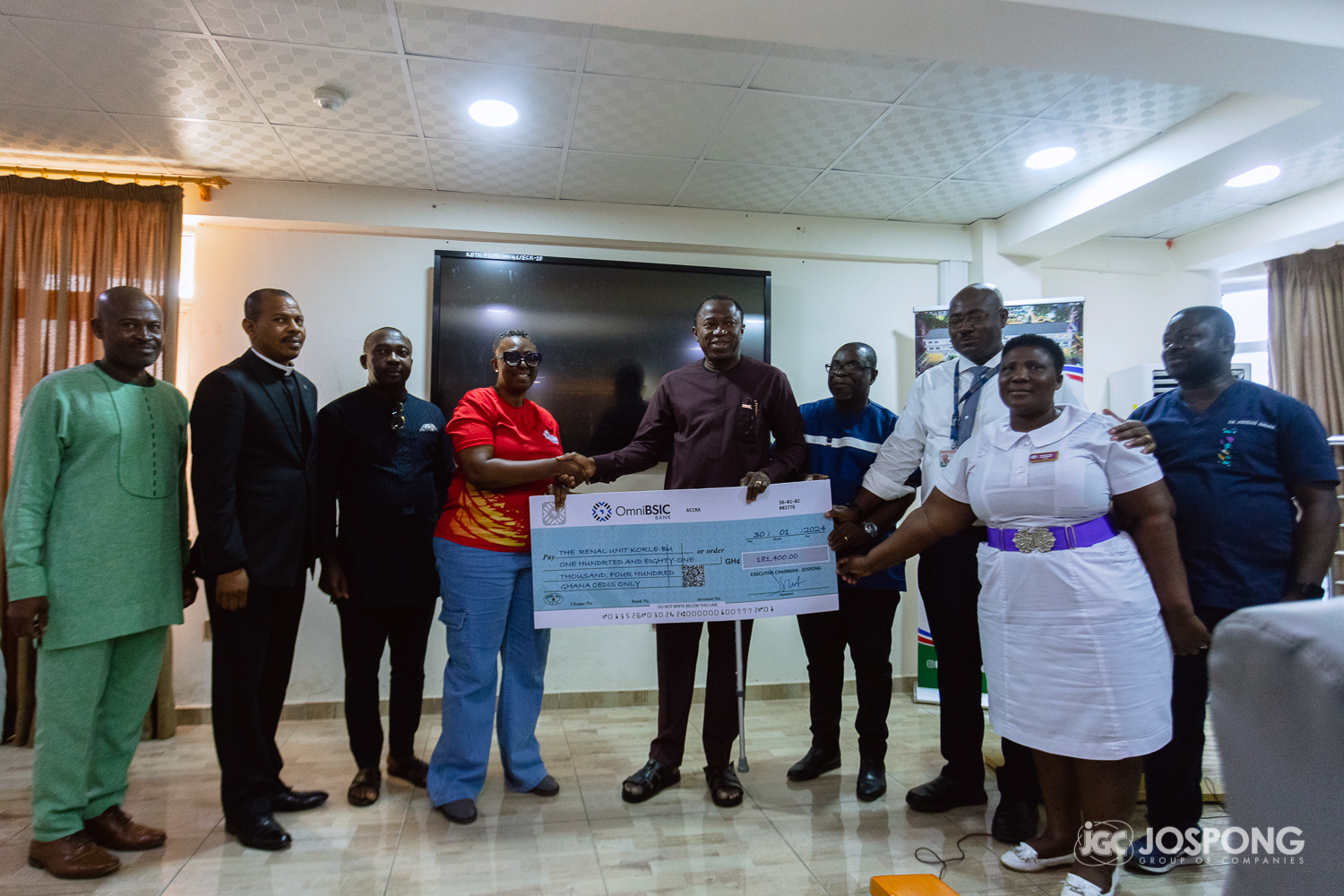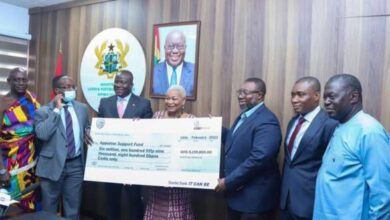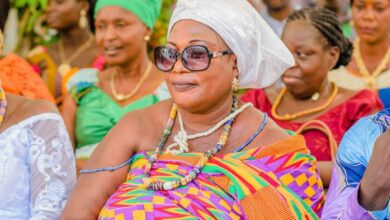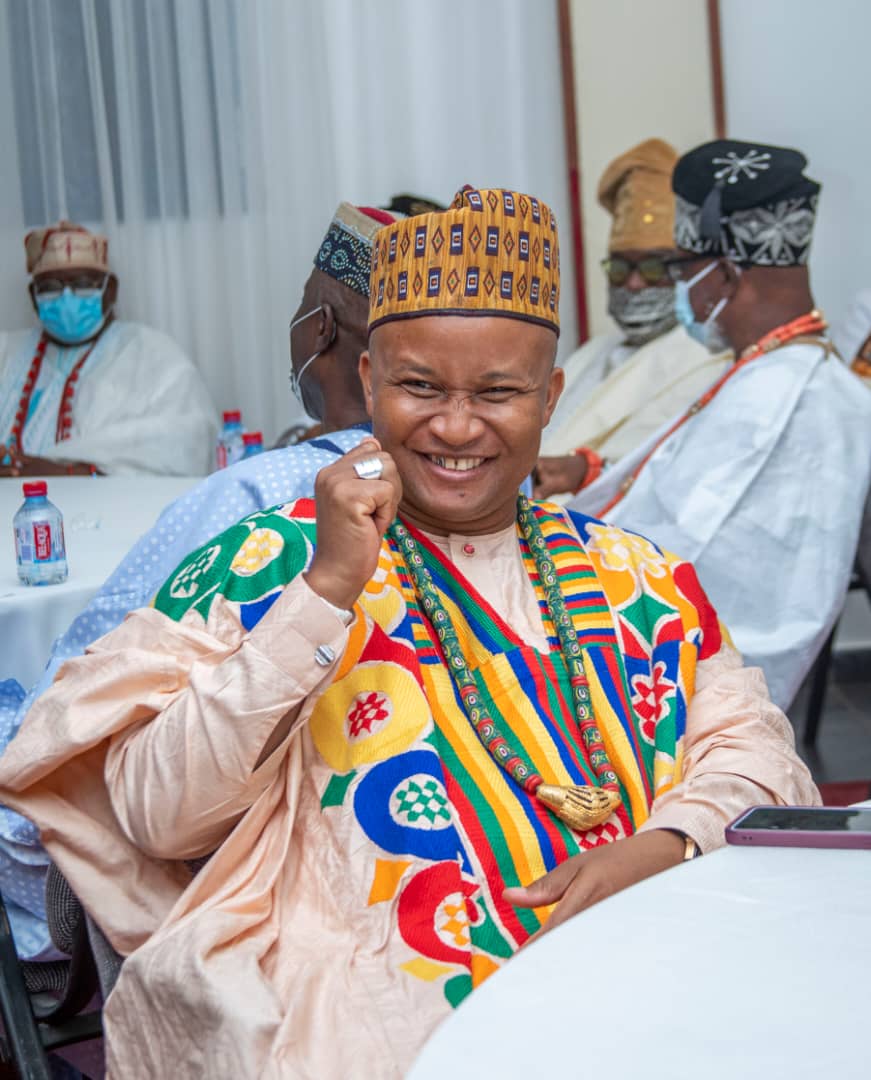Girls Education key to women empowerment-Nana Oye Bampoe Addo

A Human Rights Lawyer and former Minister of Gender, Children and Social Protection, Nana Oye Bampoe Addo has stated that, investment in girls’ education is key for the growth and development of a country. It leads to economic empowerment of women to contribute their quota for socio economic activities.
The careful planning and strategy of investment in girls’ education, enabled the achievement by Ghana’s gender parity in school enrollment for girls and boys.
In 1995, the then Government of Flt Lt. Jerry John Rawlings adopted the Accra Accord on Girls Education National Plan 1995 to 2005.
Through this strategy, the Girls Education Unit, now Girl’s Education Directorate was created by the Ministry of Education within the basic education Division of the GES in 1997.
She acknowledged and salute professor Djangmah and his colleagues for this major feat which key objective of girl’s education in is to increase participation of girls in STEM by improving quality of teaching”.
She further disclosed that, investment in girls’ education provides better employment opportunities and higher wages to women than the uneducated women to appreciate use of contraception and have fewer children.
Nana Oye Bampoe made this statement when speaking during the 2024 International Women’s Day celebration under the theme, invest in women by the Ghana Registered Nurses Association in Accra .
She stated, ” Investing in women’s education additionally has a positive effect on infant and child health. A child born to a mother who can read is 50 percent more likely to survive past age 5. In Sub Sahara Africa, an estimated 1.8 million children’s lives could have been saved in 2008, if their mothers had at least a secondary education. Investing in a woman’s education decreases the woman’s risk on contracting HIV or transmitting HIV to her child. In Indonesia, child vaccination rates were 19 percent for women with no education, and 68 percent for women with at least secondary school education”.
Below is the full speech:
INTERNATIONAL WOMEN’S DAY 2202 GHANA REGISTERED NURSES AASSOCIATION 8th March 2024 -Accra INVESTING IN WOMEN–ACCELERATING PROGRESS
Nana Oye Bampoe Addo
Happy International Women’s Day Ghana! We celebrate all women in Ghana for your hard work and resilience, especially nurses of Ghana. It is a day worth commemorating, to celebrate our women. Today I celebrate our pioneer nurses of Ghana, our ‘Florence Nightingales’ who blazed the trail for us. Mrs Akiuwumi, Docia Kisseih.
My personal testimony of living a childhood of nursing, doing voluntary work as teenager at Korle Bu Teaching hospital, with my heroines and mothers who were nurses; Sister Victoria Duamroh, Sisters Evelyn Abbiw, Mrs Day, Comfort Asiamah, Abadoo, Annobil, Amoah, Mr Kabutey, Mr Coleman, Mr Dick, Sister Pobee, Matron Ritcher Addo, Lucy Tiburi, Esther Hammond, Vanderpuye and several others. They kept the torch of Florence Nightingale alive during their period of service at the Korle Bu Teaching Hospital. Values and attributes of stoicism, resilience, empathy, care, suffering, pain, hands of healing, above all, respect for humanity.
From time immemorial, we have been seeking a more inclusive world for women; and so the theme for this year’s international women day is very apt. Gloria Steinem, a renowned feminist said. ‘The story of women’s struggle for equality belongs to no single feminist, nor to any one organization, but to the collective of all who care about human rights. I will add, ‘The story of women’s struggle is owned by the whole society, men, women and children, because the future of humanity in the bosom of the woman, we as nurturers, gatherers, holding up the wellness of our families’. Ladies and gentlemen, the whole essence of womanhood is a struggle; a struggle to count women in, stand up and be counted, sit at the table and accelerate gender equality. We are not there yet. I start with my scorecard and assessment. We are not there yet.
Literally, has there been an investment? Yes, but not without a struggle, not without advocacy or activism. Has been progress? Some progress, but we are not there yet.
There has been a consistent struggle to ensure women’s rights are human rights, that women are treated equally and with dignity, and not as second-class citizens, principally by women for women. Particularly for us in Africa, this has been a difficult process, mainly due to our socialization, culture, patriarchal society, the religions we practice, and our traditions.
Several proverbs and sayings abound, that express the inferior status of women and their sub-judication. Women are seen and not heard. When a woman owns a gun, it lies on the chest of a man. Another profound proverb is a Ugandan one which states that ‘hens do not crow to announce the approach of dawn’. Proverbs impact on gender relations and enhance gender stereotyping. Other proverbs; A jack, male donkey is not afraid of blows from a female donkey, this means that a man is resilient brave and strong, women expected to submit.’ Another; the stick that is used to beat the first wife will be the same stick that is used to beat the second wife’. ’You marry a woman because of the child’, the premium here is not a partnership, but on fertility. No woman is a castrated bull, and no man will buy a castrated bull. Meaning if a woman cannot give birth there is no need of marrying her.
There is a strong influence of proverbs and sayings on gender relations. If a woman purchases a gun it is kept in the man’s room, meaning, no matter the woman’s financial strength, she is reliant on a man. A woman sells eggplant and not gunpowder. A woman lies behind a man, a woman’s beauty should be credited to a man. A woman behaves like a kid and must be guided all the time, obaa tisere abofra.
Proverbs depicting or perceiving leadership of women. A man is a woman’s honour; a strong woman uses a cutlass to trim her pubic hair, a wealthy woman changes into a man. It is awful to ask a woman to guard a hyena, words for women, action for a man, A woman’s good looks is credit to her husband. An unmarried woman is like a cloth in the market, but a married woman is the property of her husband. A woman is like chicken, we use maize to lure her. This is the context and picture, imagery, concept of womanhood in our African, Ghanaian culture and tradition. This is what has called for the conscious, deliberate effort to invest in women for progress. If women are second class, if unmarried women are likened to cloth sold in a market, (visualize cloth sold at Makola, anybody comes to touch, check it out, etc., and then discards), if wealth acquisition is the exclusive preserve of men, then how do you deconstruct these perceptions, thinking and notion to enable women take their rightful place at the table?
There are issues of patriarchy, and the subservient nature of marriage and relationships. The issue of widowhood rites, fgm, child marriages, menstruation and other socio-cultural practices that are inimical to the development of women, and our ability to progress.
The public/private divide is another debilitating factor. Women operate in the private sphere,home nurturing, housekeeping, child minding. Men are perceived to operate in the public sphere. They are the chiefs, the Parliamentarians, Okyeames, government officials, abusuapanyin, ‘ketre’ decision makers etc. Women are not normally seen as leaders. Hens do not crow, only cocks crow to announce the approach of dawn. A woman seeking political office becomes an anathema. Personal examples here. Sakumono police bail, laryea laryea legal assignments. These perceptions have thankfully slowly changed.
With these limitations in mind, the state, the Government, civil society groups, individuals, and women themselves, have sought throughout history to change the status quo. To improve the lives of women? It is a question of what is right; a human right.
At the global and regional level, Conventions and Charters have been adopted and or ratified, to create a strong normative framework for protecting, realising and respecting women’s rights. Having regard to our social norms, our unique socio-cultural religious context and the predominance of patriarchy? We have, over the decades, built a strong robust legal and policy framework globally, regionally and in some instances nationally, to protect women’s rights,
These include the ratification of the UN CEDAW Convention (1979), the UN Convention on Economic Social and Cultural Rights, Joint General Recommendation No 31 of the Committee on the Elimination of Discrimination Against Women; the cairo Declaration, and the Beijing Platform for Action, with its ten Critical Areas of Concern.
The Annual Conclusions on the UN Commission on the Status of Women Sessions; the adoption of the Millennium Development Goals, and now the Sustainable Development Goals, focusing on women’s rights, have provided global measuring tools for advancing women’s rights.
At the Africa regional level; the African Charter on Human and People’s Rights, the African Charter on the Rights and Welfare of the Child; the Women’s Protocol to the African Charter ‘the Maputo Protocol’; The Africa Union’s 2030 Agenda for Sustainable Development; the Solemn Declaration on Gender Equality and Africa Union Strategy for Gender Equality and Women’s Empowerment; the 2021 Niamey Call to Action and Commitment to Eliminating Harmful Practices; the Continental Framework for Sexual and Reproductive Health and Rights (2005) the AU Continental Strategy on Education for Health and Wellbeing for Adolescents and Young Persons in Africa ; the AU Road Map on Harnessing the Demographic Dividend through Investment in the Youth (2016); the Model Law on Eradication of Child Marriage and Protecting Children Already in Marriage(2016).
These laws and policies have been one strong foundation for women’s rights, in justifying why laws protecting women should be passed, determining progress and deepening respect for women’s rights. Beyond inspiration, we have used them to advocate for better protection of women’s rights. Examples of advocacy for laws; Domestic Violence Act, Sister’s Keepers, access to comprehensive abortion care, reduction of maternal mortality, adolescent reproductive health tactile balloting and voting for PWDs, affirmative action for women for public office, right to information, trafficking in women, free medical care for women. LEAP for pregnant and lactating women in poorest districts of Ghana. We are still advocating for new laws including extending maternal leave to four months and introducing paternal leave of two weeks.
I will give three short examples of how investing in women in education, health and gender-based violence has helped to progress and advance the cause of women, especially in protecting women’s rights.
Education – In terms of education, gender parity between boys and girls was achieved in primary school and secondary school enrollment in 2015 and 2020 respectively. Free SHS was introduced by government in 2017, and this has increased enrollment in schools for both boys and girls. Various mechanisms were employed by government and stakeholders to ensure access to education for girls.
The investment in girls’ education, enabled the achievement by Ghana’s gender parity in school enrollment for girls and boys. I repeat, this was through investment, careful planning, and strategy. In 1995, the then Government of Flt Lt. Jerry John Rawlings adopted the Accra Accord on Girls Education National Plan 1995 to 2005.Through this strategy, the Girls Education Unit, now Girl’s Education Directorate was created by the Ministry of Education. It was created within the basic education Division of the GES in 1997. I salute professor Djangmah, and his colleagues for this major feat. The key objective of girl’s education in Ghana in 1997 was to increase participation of girls in STEM by improving quality of teaching.
The underlying argument and justification for adopting a strategy to focus and invest in girls education was that ‘investing in girls education, was the most cost effective measure in a developing country to improve the standard of living’. The STEM statistics showed that in Ghana, out of 3000 ranked best scientists, only 285 were women, that is, 9.8 percent.
Investments made in girls STEM education included creation of STEM clinics by UNESCO in selected districts in Ghana. A Girls in ICT programme by the Ministry of Communications and Digitalisation was also commenced and, 9000 girls have been trained so far. Huawei in Ghana also commenced the Seeds for the Future Programme and trained 25,000 girls in SHS in cyber security and privacy protection.
This investment over three decades has led to gender parity in 2015.Enrollment in primary education for girls increased from 2 million in 2014 to 2.3 million in 2022 with an increase of 15.1%. Enrollment in secondary school education for females increased from 1 million in 2014 to 1.6 million in 2022, an increase of 52.1 %. Much more needs to be done in increasing the enrollment of girls on tertiary institutions, especially in STEM.
With respect to STEM and girls, may I recognize the achievement of Prof Nana Ama Brown Klutse, the first female head of the Department of Physics of the University of Ghana, the youngest female Professor of Physics in Ghana, and the only African on the UN Committee on Climate Change. The right investment in education reaps these pleasurable fruits.
Investment in girls’ education is key for any developing country. It leads to economic empowerment because it provides women better employment opportunities and higher wages. Women with at least some formal education are more likely than uneducated women to use contraception and have fewer children. Story of my grandma Maame Tarkwa here. Investing in women’s education additionally has a positive effect on infant and child health. A child born to a mother who can read is 50 percent more likely to survive past age 5. In Sub Saharan Africa, an estimated 1.8 million children’s lives could have been saved in 2008, if their mothers had at least a secondary education. Investing in a woman’s education decreases the woman’s risk on contracting HIV or transmitting HIV to her child. In Indonesia, child vaccination rates were 19 percent for women with no education, and 68 percent for women with at least secondary school education.
By investing in girls education in 1995, with the creation of the girls education directorate, which now has girls education officers in every single district in Ghana, President JJ Rawlings, laudable vision and investment has reaped positive fruits. We need to progress and build on this strong foundation.
Health – Health is wealth. According to the 2022 Demographic and Health Survey, a woman in Ghana will bear an average of 3.9 children in her lifetime. In terms of sexual and reproductive health, 36 percent of women who are currently married use some form of contraception. The most used modern form of contraception are injectables and implants. The use of contraceptives has increased in Ghana from 5 percent in 1988 to 28 percent in 2022. Total demand for family planning is 60 percent, and the unmet need for family planning has declined from 37 percent in 1993 to 23 percent in 2022.
In the Africa region, the maternal mortality rate has declined from an estimated 857 maternal deaths per 1000 live births in year 2000, to 525 deaths per 1000 live births in 2017. This is still far from the global target of 140 maternal deaths per 1000 live births. From 2010 and 2017, the annual rate of reduction of MM was 2.3 percent, For Africa to reach the target of 70 maternal deaths by 2030, the Africa needs to have an average annual rate of reduction of MM of 10.9 percent. The increase in uptake of modern methods of contraception increased by 6% in Ghana from 2014 to 2022(22 to 28%); and by 2% in Nigeria from 2013 to 2018(10% to12%).
The numbers of women dying from non-communicable diseases is worrying. Diabetes, high blood pressure, strokes, cervical and breast cancer. How do we progress and reduce the numbers? What is the role of nurses in this regard? What are you seeing in your health care facilities you are in charge of? Health is wealth, healthy women hold up the family, hold up the society. Measures must be adopted by the healthcare sector to ensure progress in healthcare and access to better quality healthcare services.
Specialist care for non-communicable diseases must be decentralized and made available at more healthcare facilities. Dialysis and other services, mist be made more affordable and accessible. Every district must have a hospital with all these services.
One major success women’s health story, that addressed socio-cultural barriers and reduced maternal mortality was the R3M programme implemented in Ghana. It was successful in addressing high abortion rates and low family planning uptake in Ghana. It reduced maternal mortality in Ghana through the provision of safe and quality comprehensive abortion care and family planning services to more than 1.8 million clients. Gynae centre constructed at Korle bu. Through the implementation of R3M, there was a cultural shift in values and attitudes towards abortion. As a result of ground softening and service delivery innovations, there was a shifting of cultural and religious resistance and objections to abortion. It occurred without any societal turmoil about abortion in Ghana, this contrasts with experiences of other African countries, like Kenya, where massive public protests and resistance have hindered efforts to improve women’s access to comprehensive abortion care.
Investing in women’s health has significant positive implications for household resource allocation and family welfare. When women are healthy, they are better able to engage in income generating activities and contribute to household income.
Gender based violence – 32 percent of women in Ghana have ever experienced gender-based violence. According to the Ghana Statistical Service, 28 % of Ghana women experience domestic violence. One in four Ghanaian women have experienced physical and sexual violence. 16000 cases of domestic violence were reported at DOVVSU in 2020. According to research conducted by HRAC in 2010, 67% of CSWs had had sexual encounters with the Police. A third of them had had unprotected sex with the police. 57 % of CSWs aged 15 to 19 years had had unprotected sex with police officers in Ghana. Another research by HRAC showed that 28 % of respondents students in JHS,had been subjected to cyber violence. Another survey revealed that there are also two spousal murders every month. We remember the murder of Lilian Dedjoe. A UNDP Global Survey of 2023 reveals that 25 % of people believe that beating of a wife is justifiable.
The high levels of gender-based violence in Ghana is highly unacceptable. We need radical progress and innovative solutions that will achieve results and reduce the violence women in Ghana suffer. There are sad stories, sometimes it results in death!!!!! What are women resorting to? Aunty Naa, Oyerepa, women pouring out their heart, their traumatizing stories of despair and violence. Serious mental health issues here. When will the violence stop? The beatings, killing of wives, insults and denigrating behaviour? Who does the woman go to for support?
Interventions to address gender based violence n Ghana include the creation of the Domestic Violence and Victim Support Unit of the Ghana Police Service in 1997., creation of shelters, Sexual Assault Centre at the Department of Children at Korle bu teaching hospital. Two special courts on gender based violence, cash transfer for survivors, kayayei Project for livelihood skills. etc
These interventions are not enough.Much more needs to be done. I end on this note; an urgent call to address GBV as an epidemic in ghana tody. The staistics has remained the same. We have the Domestic Violence Act, but women are ebing battered and beaten and humiliated. Women are suffereing mental and psychological trauma due to the violence they are experiencing. Ghana has to rise up to protect its women.
For progress to be made, there should be more resurces, more political commitment, more from CSOs and professional bodies like GRNA
Today is a reflective Intl Womens day
Conclusion
1.Investment by the State in girls education in Ghana yielded positive results.There has to be a deliberate intervention to invest in health of women,education and to address in gender based violence
2. The prevalence of gender based violence is worsening. Tertiary hospitals should created sexual assault centres that deal with abuse of children, modelled along the One at korle bu teaching hospital’s Children’s Block
3. Mental health, especially for women is a major concern. I recommend mental health services should be decentralised nationwide, so that all district hospitals offer mental health services, and clinical psychologists and counsellors are posted to the hospitals.




